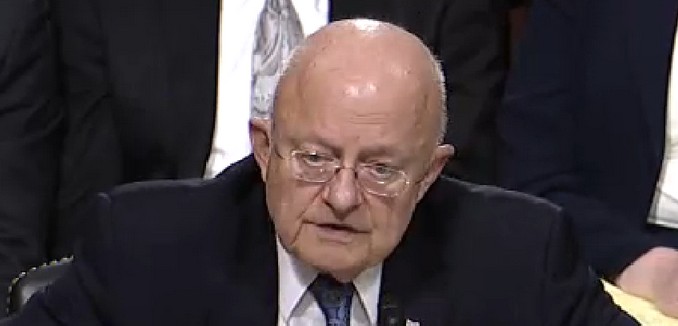Director of National Intelligence James Clapper said that “Iran does not face any insurmountable technical barriers to producing a nuclear weapon,” directly contradicting the Obama administration’s assertion that the nuclear deal blocks all of Iran’s pathways to a nuclear bomb, the Washington Free Beacon reported Tuesday.
Clapper told the Senate Armed Services Committee that the U.S. intelligence community does not know “whether Iran will build a nuclear weapon in the wake last summer’s nuclear deal,” adding that Iran’s “political will” has therefore become the central issue at hand. His testimony reflected the conclusions presented by the intelligence community in its latest Worldwide Threat Assessment (.pdf).
“Iran probably views the Joint Comprehensive Plan of Action (JCPOA) as a means to remove sanctions while preserving some of its nuclear capabilities, as well as the option to eventually expand its nuclear infrastructure,” Clapper noted.
While Clapper reiterated the Obama administration’s controversial assertion, which has been questioned by outside experts, that it would now take Iran about a year to build a nuclear weapon due to the JCPOA, he also acknowledged that Tehran continues to advance its ballistic missile program. “Iran’s ballistic missiles are inherently capable of delivering [weapons of mass destruction], and Tehran already has the largest inventory of ballistic missiles in the Middle East,” he observed.
Iran’s ongoing development of ballistic missiles contravenes United Nations Security Council Resolution 2231, which formalized the nuclear deal and called on Iran “not to undertake any activity related to ballistic missiles.”
According to the Worldwide Threat Assessment, Iran remains the world’s top state sponsor of terrorism and “continues to exert its influence in regional crises in the Middle East through the Islamic Revolutionary Guard Corps—Qods Force (IRGC-QF), its terrorist partner Lebanese Hizballah, and proxy groups.” The report further emphasized that Tehran and its proxies “remain a continuing terrorist threat to US interests and partners worldwide.”
[Photo: Senate Armed Services Committee ]




